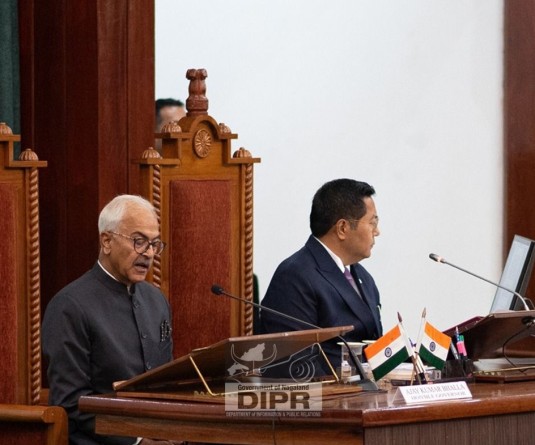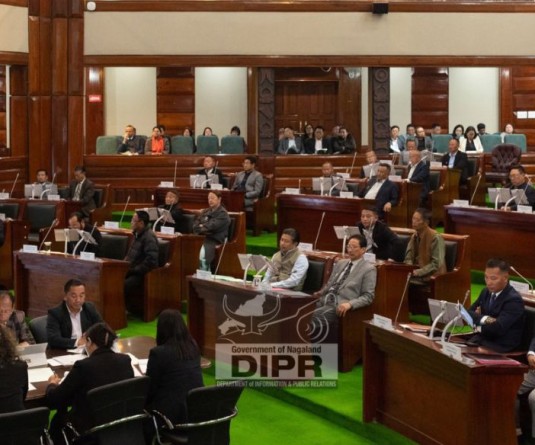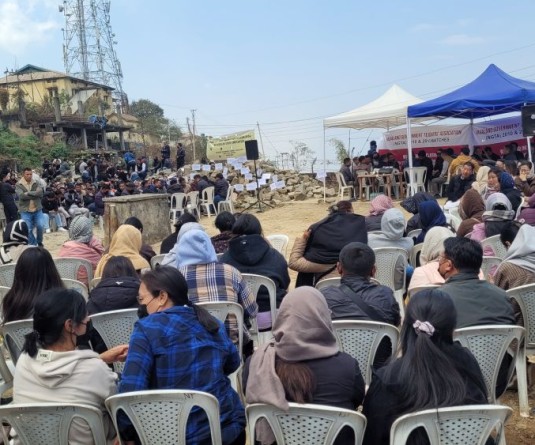Media persons during the observation National Press Day in Dimapur on November 16. (Morung Photo)
Morung Express News
Dimapur | November 16
As Nagaland’s news media continue to operate in an ever changing landscape, where more people are coming on board in the digital space and becoming informatively aware, Sashi Wapang, the Additional Commissioner for CGST, Dimapur viewed that it was all the more pertinent to stress on economic issues which does not get the deserved attention it needs.
For a state, heavily dependent on central funding for its operations (12% internal revenue and 88% central funds), he proposed that more public discourse should be held on “how our economy is being run.”
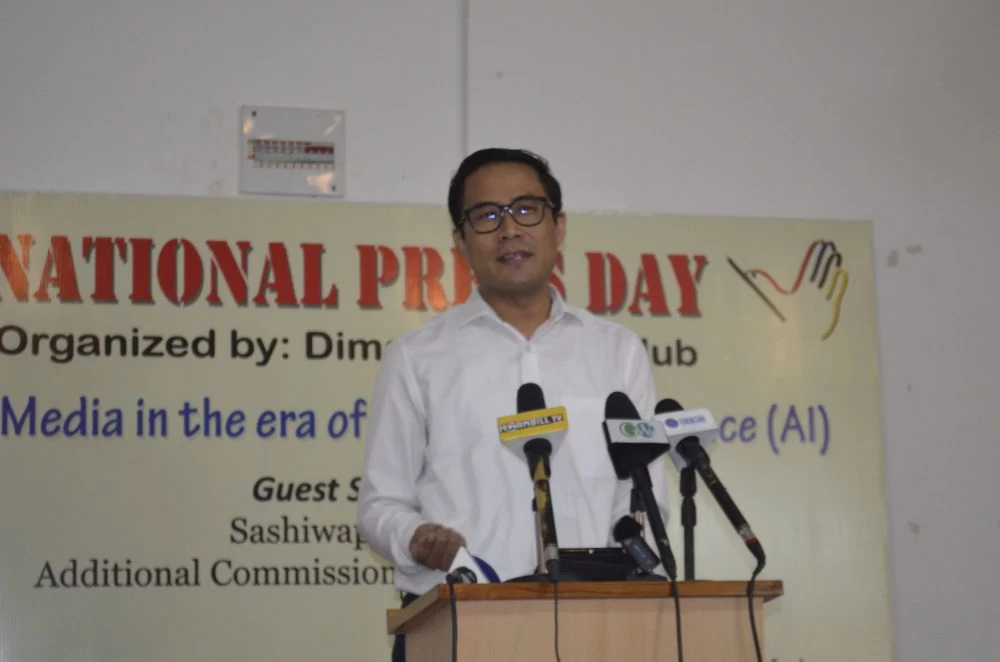
The official was speaking as the special guest during the National Press Day organised by the Dimapur Press Club (DPC) at Hill View colony, Dimapur on November 16.
Judging from personal observation, he added that news related content in the state has heavily been focused on social and political issues with less focus on economic based issues such as analysis on business, taxation and finances. On this, he stressed on the need to provide relevant content centred on ground realities to enable the public to make well informed decisions.
In one instance, he pointed to the fact that, “lack of our own revenue resources is affecting our ability to access more central funding.” This was based primarily on the policy of 90:10 central and state share of any spending on a project which “sometimes our resources aren’t enough to meet the 10%.”
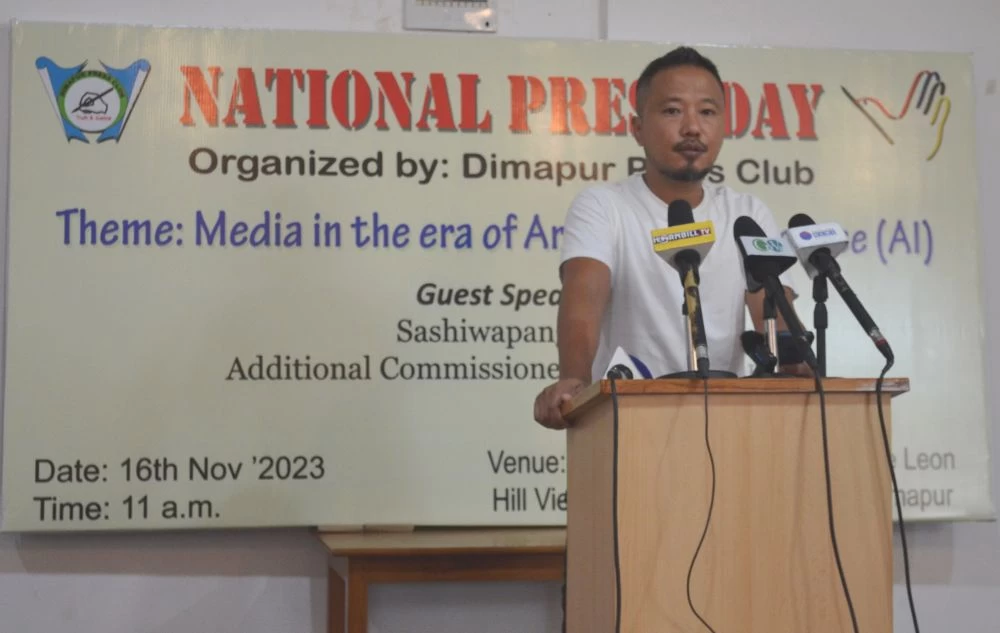
Moreover, with the state’s image of earlier being “mysterious and inaccessible” fading and driven by more peaceful times, he noted the recent increase in the number of visitations from Union Ministers and central bureaucrats has been an indication of the government’s renewed effort to demand more accountability and results on the ground.
As a revenue officer, he also felt the need to highlight the potential from sources such as oil and gas exploration, industrialisation and excise duties which has been left in cold storage as of now. “The annual oil royalty that Nagaland is losing out on is 1,825 Crore yearly which is around a hundred odd crore less than our 12% revenue raised (1951 Cr),” he stated.
Delving on the position of where Article 371 A stands in all this; he remarked that, “We cannot be saying we want to be comfortable in our ways but India should keep feeding us for the rest of our lives.”
With India going forward and raising itself to be a global power, the question of what comparative advantages Nagaland brings to the table also comes up, he added. “Nobody wants to be a non performer.”

Due to which he stressed on the media’s role to foster open dialogue, question policies or decisions, convey people’s needs and desires and inform people of the success and failures of the government.
On other aspects in relation to this year’s theme, ‘Media in the era of Artificial Intelligence (AI)’ the official considered it an inevitable change that the local media should adapt to. Algorithms have changed the way people interact with news depending on one’s preference and interest, he said. At the same time, he mentioned that the usage of AI is like a double-edged sword with the dangers of misinformation, bias and ethical considerations.
Earlier during the programme, DPC President, Imkong Walling provided a brief highlight of the guest speaker and the topic at hand. Vote of thanks was delivered by Vice President, Honikali Lohe.


